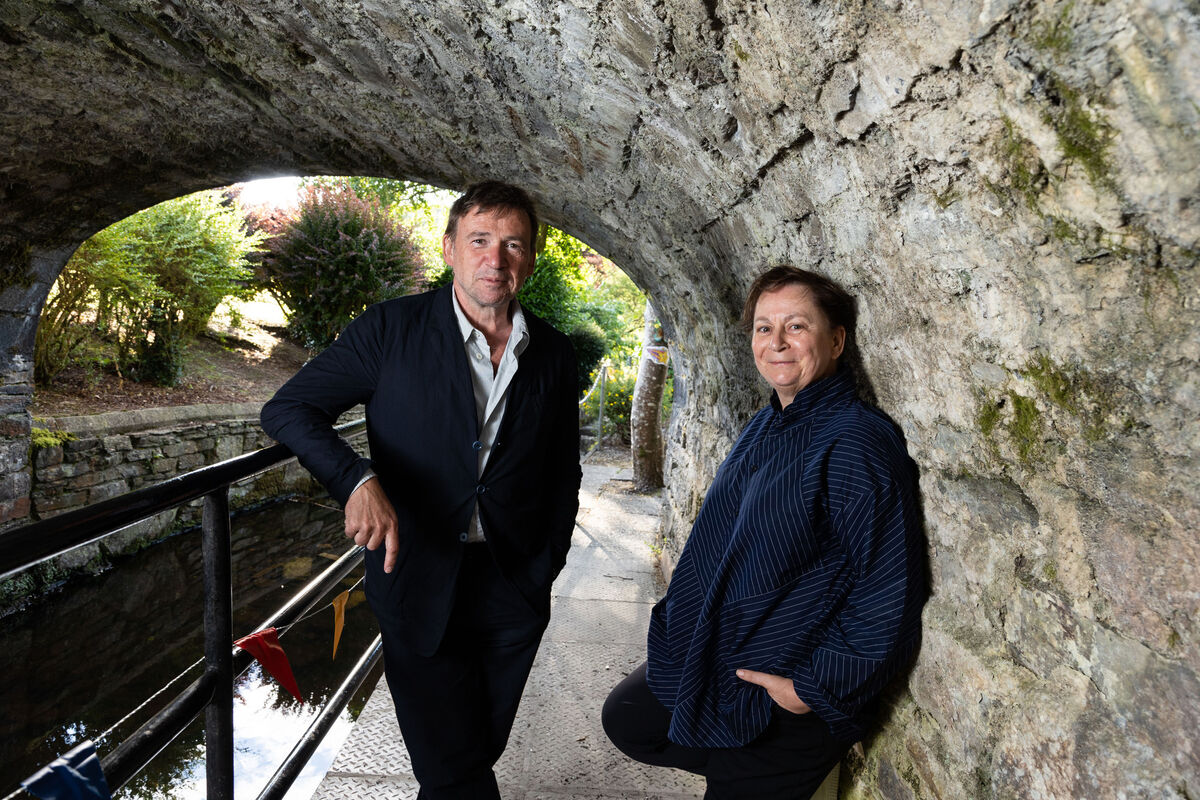Enjoyable fare from Anne Enright and David Nicholls at West Cork Literary Festival

Deirdre O’Shaughnessy of the Irish Examiner with authors David Nicholls and Anne Enright at the Westlodge Hotel, Bantry for the West Cork Literary Festival. Picture: Darragh Kane
When literary superstars Anne Enright and David Nicholls entered the packed conference room in Bantry's Westlodge Hotel on Saturday night, the audience did not stamp their feet or whoop with excitement. Instead, they showed their appreciation through rapt silence interspersed with gentle laughter and applause. It was the contained reaction you'd expect from people who are serious about books.





